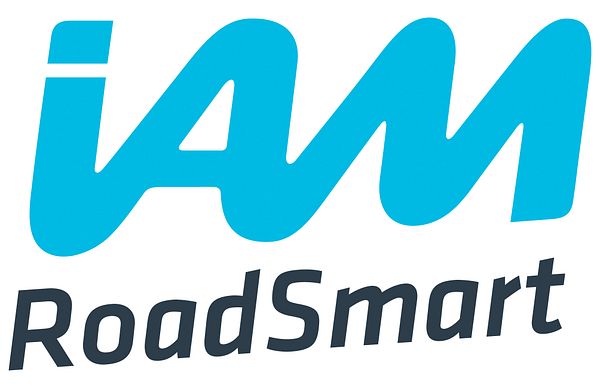
Press release -
Food deliveries soar but insufficient training and standards is putting thousands of gig economy workers at risk
- Orders through third party app-based delivery account for nearly 40 percent of deliveries
- One in five (22%) restaurants don’t offer training with half (51%) saying they’re not direct employees or not responsible for training
- E-bikes and e-scooters now being used by almost half and a third of workers
Hot food deliveries are now more popular than dining in or takeaway, prompting calls for the apps to take road safety more seriously.
For restaurants offering the option of ordering via a food app, takeaway, or dining in, nearly half of all orders (45%) were made on the apps, indicating that Brits would rather have a night in the comfort of their own home.
Only one third (31%) were prepared to venture out to a restaurant, and just one quarter (24%) opted for takeaway, according to research of 208 restaurants conducted by IAM RoadSmart, the UK’s leading road safety charity. [i]
At the same time, work-related motorcycle collisions have increased by 6 percent; in 2021 there were 2,661 collisions, rising to 2,809 collisions in 2024.[ii]
Despite the concerning rise in collisions, IAM RoadSmart found that one in five (22%) restaurants don’t offer any road safety training at all primarily because many of these workers are not directly employed. Only a third (31%) of restaurants surveyed said they directly employ delivery workers under contract.
Among restaurants that provide training and guidance, only one in three require mandatory participation in both practical and online courses. The most common form of support is informational resources (67%).
Only half of restaurants provide high-vis jackets and advanced driving or riding training.
Motorbikes and mopeds are the most common vehicle type for deliveries, with restaurant managers saying they account for just over half (62%) of drop-offs, with cars (59%) following closely.
However, many restaurants have workers using a variety of vehicles to take hot food to people’s homes.
Almost half (48%) of restaurants say their delivery workers are using e-bikes and a third (33%) said e-scooters were being ridden.
IAM RoadSmart, which provides advanced driver and rider training, also found that many apps deploy pressure tactics designed to increase the number of hot food deliveries a worker makes, including awarding points for every completed order which can then be used to save on fuel and gym memberships.
The publication of this research follows a 2019 study by Professor Nicola Christie of University College London (UCL) which found that motorcyclists operating in the sector feel pressured and are likely to take more risks.[iii] The report also confirmed that app-based delivery causes greater distraction for the rider, and also that these riders are more likely to violate road traffic laws.
In 2023, there were an estimated 463,000 gig economy workers in the UK, with the CIPD assessing that there were around 80,000 working within the food delivery market.[iv]
Separate research by IAM RoadSmart shows that more than half (63%) of consumers think that delivery drivers and riders should undertake online road safety training AND on-road training before they can start work.[v]
IAM RoadSmart Director of Policy and Standards Nicholas Lyes said: “People’s appetite for ordering via the apps is strong yet the safety of those getting the food from the kitchen to the home continues to give huge cause for concern.
“Our research shows that the approach to delivery safety standards is at best fragmented and at worst almost non-existent.
“It also demonstrates how the method of delivery may now include devices that are not compliant with laws, for example private e-scooters or e-bikes.
“Use of such devices in a sector that rewards efficiency could encourage more workers to modify their vehicles, creating a more dangerous environment on our roads.
“The food delivery sector has seen rapid growth over the last decade, aided by third party apps, and the success of this model for restaurants has been a lifeline in challenging times such as covid.
“However, this must not come at the expense of safety and a new approach is needed. We’re recommending changes that include better data collection and transparency, a more standardised approach to training and greater recognition for safe delivery workers.”
The report “The Gig Economy: How can we reduce risk?” can be accessed here
ENDS
[i] IAM RoadSmart: The Gig Economy: How can we reduce risk? Research and recommendations to improve road safety in the sector
[ii] Department for Transport: Motorcycle collisions – journey as part of work, Great Britain, 2015-2024
[iii] Science Direct: The health and safety risks for people who drive for work in the gig economy - https://www.sciencedirect.com/science/article/abs/pii/S2214140518305772
[iv] CIPD: The true story of the gig economy - https://www.cipd.org/uk/views-and-insights/thought-leadership/cipd-voice/uk-gig-economy/
[v] IAM RoadSmart Opinion Panel survey, February 2025 (conducted by Online95)
Topics
Categories
Regions
Notes to editors
For interviews, contact the IAM RoadSmart press office on press.office@iam.org.uk / 020 8996 9777
About IAM RoadSmart
IAM RoadSmart is the UK’s leading road safety charity providing advanced driver and rider training. We coach and educate road users, campaign for change and make journeys safer for everyone.
IAM RoadSmart was formed in March 1956 and has around 70,000 members and 5,000 volunteers that support its campaigns on road safety. At any one time there are more than 7,000 drivers and riders actively engaged with IAM RoadSmart’s courses.
To find out more about IAM RoadSmart go to: www.iamroadsmart.com
Follow us:
Facebook: www.facebook.com/IAMRoadSmart
X (formerly Twitter): @IAMRoadSmart
Media centre: https://media.iamroadsmart.com/
IAM RoadSmart Commercial
We deliver courses in the workplace. To find out more about how IAM RoadSmart can help with fleet and work training visit www.iamcommercial.co.uk
IAM RoadSmart and Driving for Better Business
IAM RoadSmart has partnered with Driving for Better Business, a free to access National Highways business engagement programme to help employers reduce work-related road risk, protecting staff who drive or ride for work, and others who they may share the road with.
For more information go to: https://www.drivingforbetterbusiness.com/



